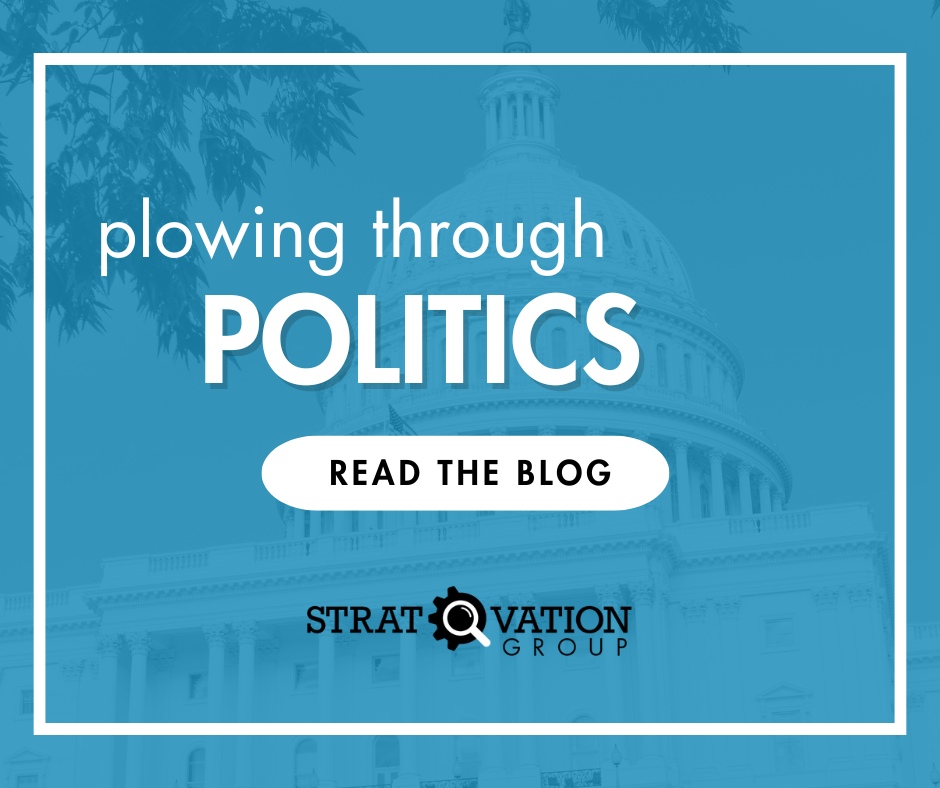Plowing Through Politics: A Farmer’s Take on the Farm Bill Saga
By Blake Hurst
The consensus is that the Farm Bill, which should have passed last year, won’t stand a chance until next year. Farm Bills are written for a period of five years, but they are almost never passed on time. The House has passed the bill out of committee. The Senate has failed to act. With very few legislative days left in 2024, time is short.
I used to spend a lot of time thinking about Farm Bills, as lobbying was a large part of my job. Since returning to the farm, I have to admit that I’ve been less attentive to the twists and turns of farm policy. Feeling more than a little guilt, I’ve decided to remedy my inattention. After spending some time researching the 2024 Farm Bill, here is what I’ve learned.
The fights are still largely the same. Inside the ag committee, the important battle is not between the two parties, but rather between the Midwest and the South. Although it’s considered bad form to point this out, the South usually does quite well in these contests. There are a number of reasons for this, but seniority matters, and Southerners in Congress stick around long enough to seemingly always have ranking members and Chairmen. Not only that, but the crop grown on the most acres, corn, is a Midwestern crop. A small increase in subsidies for corn costs much more than a larger increase in subsidies for a crop like peanuts, just to take an example not totally at random.
Outside the ag committees, the big fight is between funding for SNAP and money for traditional farm programs. According to the Democrats, Republicans are paying for the proposed increase in reference prices by cutting the SNAP program, which accounts for 80% of Farm Bill spending. According to the Republicans, they are not directly cutting the program but are making common-sense changes to the formula that determines individual benefits.
Here, I’m of two minds. In 2018, changes in the Farm Bill formula which determines SNAP benefits increased the cost of the program by about $1.35/day per recipient. The House Ag Committee bill would tweak that formula, resulting in a decrease in benefits of over 30 billion dollars. That sounds like a lot, but it’s important to remember that the decrease would happen over ten years and be spread across 41 million recipients, implying a benefit cut of about $0.20/day. That doesn’t seem like a draconian reduction in assistance.
On the other hand, we are a rich and generous country, and even though our national debt keeps me up at night, if there is one area of government spending where we ought to err on the side of generosity, it is in making sure that the less fortunate amongst us have enough to eat.
Incidentally, the food purchased with SNAP benefits is a product of American farms and benefits my pocketbook as well. Not only that, but I know that lobbyists are without shame because I was one, but surely people lobbying against reducing the income eligibility for farm programs from today’s $900,000 per annum to the Senate Democrats’ proposal of $750,000 have the grace to be embarrassed by lobbying simultaneously for a cut in SNAP benefits, no matter how small.
There are also disagreements over conservation spending. The amusingly named Inflation Reduction Act sent a lot of money to programs that have traditionally been funded inside the Farm Bill, with an emphasis on increasing carbon sequestration. Republicans are attempting to reassert control by the Ag Committees of that funding, but Democrats argue that the Republican changes are an offense against all that is good and true. The Republicans would like to fund at least part of the increase in Farm Bill costs by decreasing the Secretary of Agriculture’s ability to direct CCC spending. The Republicans’ enthusiasm for reducing the power of the Secretary of Agriculture will likely decrease after the effects of the recent Presidential debate show up in the polling.
The disagreements over the budget and policy seem insurmountable, but Farm Bills typically have several near-death experiences before final passage is reached. In fact, I think I speak for many who have followed farm policy over the years when I say that farm policy is one of the few areas where the traditional legislative process of give and take, and if not bipartisan agreement, at least bipartisan exhaustion, leads to the passage of actual legislation. This is a good thing, and I’m confident it will happen again, if not late this year, then early next.
—————————————————————
Blake Hurst is a Missouri Farmer and Greenhouse Operator. He is former president of the Missouri Farm Bureau and a current member of Stratovation Group’s Board of Advisors.

